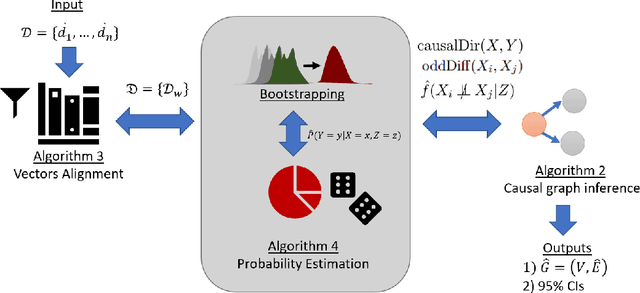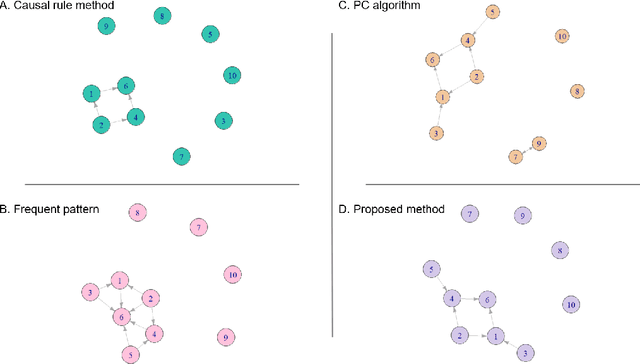Framework for inferring empirical causal graphs from binary data to support multidimensional poverty analysis
Paper and Code
May 12, 2022



Poverty is one of the fundamental issues that mankind faces. Multidimensional Poverty Index (MPI) is deployed for measuring poverty issues in a population beyond monetary. However, MPI cannot provide information regarding associations and causal relations among poverty factors. Does education cause income inequality in a specific region? Is lacking education a cause of health issues? By not knowing causal relations, policy maker cannot pinpoint root causes of poverty issues of a specific population, which might not be the same across different population. Additionally, MPI requires binary data, which cannot be analyzed by most of causal inference frameworks. In this work, we proposed an exploratory-data-analysis framework for finding possible causal relations with confidence intervals among binary data. The proposed framework provides not only how severe the issue of poverty is, but it also provides the causal relations among poverty factors. Moreover, knowing a confidence interval of degree of causal direction lets us know how strong a causal relation is. We evaluated the proposed framework with several baseline approaches in simulation datasets as well as using two real-world datasets as case studies 1) Twin births of the United States: the relation between birth weight and mortality of twin, and 2) Thailand population surveys from 378k households of Chiang Mai and 353k households of Khon Kaen provinces. Our framework performed better than baselines in most cases. The first case study reveals almost all mortality cases in twins have issues of low birth weights but not all low-birth-weight twins were died. The second case study reveals that smoking associates with drinking alcohol in both provinces and there is a causal relation of smoking causes drinking alcohol in only Chiang Mai province. The framework can be applied beyond the poverty context.
 Add to Chrome
Add to Chrome Add to Firefox
Add to Firefox Add to Edge
Add to Edge